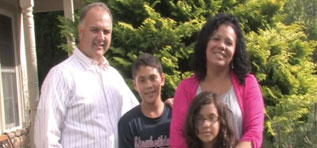The Adolescent Brain

“Don’t you trust me?” your child asks. When it comes to decision making about the use of alcohol, tobacco and other drugs, it’s not just about trust. It’s about understanding adolescent brain development.
There is a reason so many of our teens and preteens behave as if they are immortal and acting on impulse without considering the consequences. Blame it partially on their brain.
The part of the brain that promotes impulsivity and risk-taking develops early in teens, while the brain area responsible for thinking, planning, good judgment, decision making and impulse control is undergoing the most change (and will continue to develop well into the mid-twenties). Because of this lack of brain maturity, teens and preteens lack the ability to control impulses. This increases the probability of engaging in risky behavior, like smoking, drinking and illegal drug use.
Click to see video – Affects of Alcohol on the teenage brain
In this critical stage of development, your child needs an informed parent to step in, to set clear boundaries and serve as that impulse control.
How You Can Help Your Child:
- Explain the risks of alcohol, tobacco and other drug use
- Talk early and often
- Set clear non-use rules
- Know your child’s friends (and their parents)
- Know where your child is at all times
- Play an active role in your child’s daily life
The Adolescent Brain Cognitive Development (ABCD) Study, in progress now, is the largest long-term study of brain development and child health in the United States. Researchers will track biological and behavioral development through adolescence into young adulthood. Scientists will determine how childhood experiences (such as sports, videogames, social media, unhealthy sleep patterns, and smoking) interact with each other and with a child’s changing biology to affect brain development and social, behavioral, academic, health, and other outcomes. The links below contain more information about this groundbreaking study.
New study to focus on teen brain development 1/5/17





